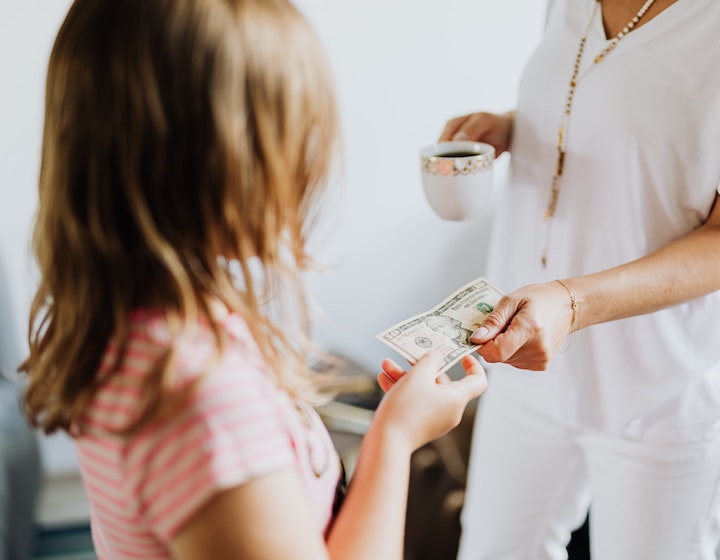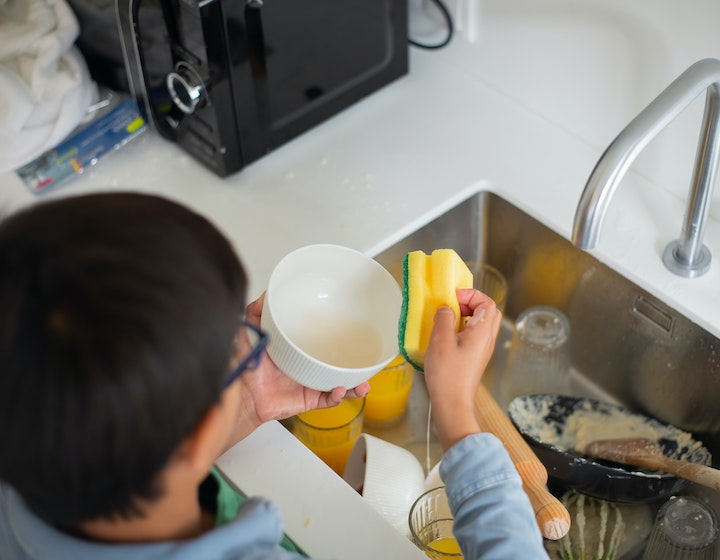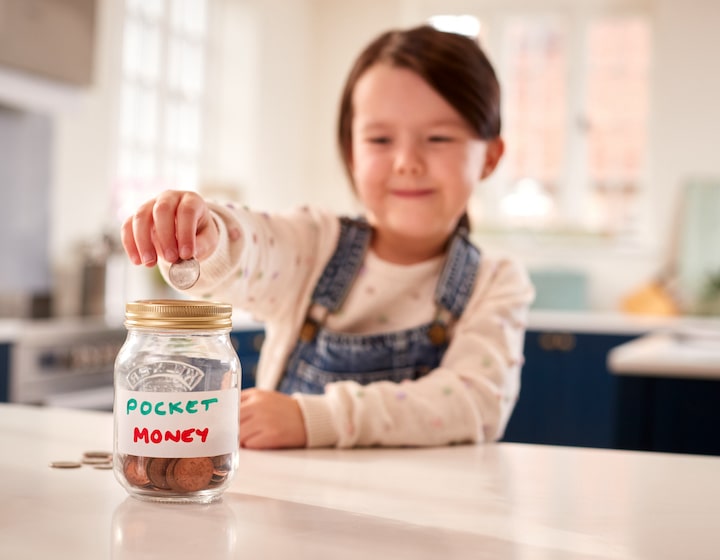
 Post Category - ParentingParenting
Post Category - ParentingParentingIs it time to start thinking about pocket money or starting an allowance for your teens or tweens? Introducing pocket money to your child can be a minefield… How much? When? How often? Here’s advice on where to start, pocket money tips and allowance apps to help you manage the bank of mum and dad.
We all know it is crucial to teach kids the value of money. The obvious starting point is by giving them pocket money or a regular allowance. But should pocket money be a given, or is it better to dol out the dosh after completion of a few household chores? After all, we want them to understand that hard work pays off!
The whole pocket money and allowance thing can be daunting. Give them too little and you’ll be the meanest mama on the block or hand out too much and you’re at risk of “spoiling” your child. While pocket money is almost a rite of passage for kids, giving it to them too early could mean they won’t understand the value of it or come to expect a handout at every turn.
Read More: How To Raise A Well-Rounded Only Child In Hong Kong
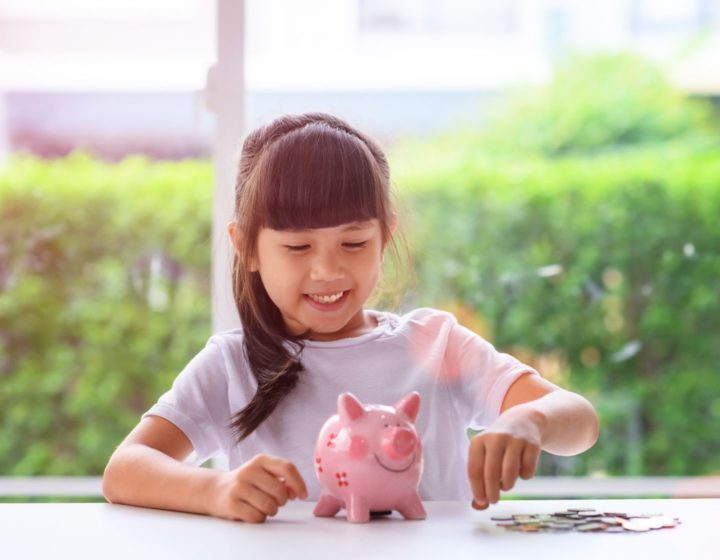
What Age Is Best To Start Giving Pocket Money?
The general consensus is that between the ages of 6 to 8 is around the right age for kids to start getting some money of their own. However, there’s also the argument that it should start right after the tooth fairy’s first visit so that they can begin to save those magic coins. Or link an allowance or pocket money with something that the kids want (new toys etc.) so that they can start saving for themselves.
The Investor and Financial Education Council in Hong Kong suggest that there is no fixed age to start giving pocket money. But signs to look out for that show they might be ready are:
- If they start asking you where money comes from
- They have a basic understanding of money, such as what it’s used for
- They have learned about and are familiar with coins and notes
- Or they need to spend money in their everyday life, perhaps at the shop on the way home from school.
MoneySupermarket also adds that pocket money or an allowance is good for children to:
- Understand the value of money (saving to purchase something of more value versus spending it as soon as you get it)
- That it has to be earned
- To teach budgeting (once the money is spent there is no more until next week)
Read More: Teaching Kids To Earn, Invest And Save Money In Hong Kong
How Much Pocket Money Should I Give In Hong Kong?
This depends on your individual family situation. The amount you choose is down to you – don’t be swayed by what others are giving their kids, no matter how many times your child tells you! To give you an idea, children aged 10 in the UK get around £5 a week (approximately $50), according to the RoosterMoney pocket money app. The weekly average chart or pocket money by ages will give you a starting point. Just keep in mind that Hong Kong is the most expensive city to live in the world according to the most recent ECA International cost of living report (June 2022).
Read More: Financial Planning For University And College Education
How To Earn Pocket Money Or An Allowance
You might like to set the expectation that if your kids want pocket money they’ll have to earn it. This could include a weekly checklist filled with age-appropriate, achievable tasks with the cash only being issued once everything on the list is complete.
The list could include:
- Making their bed
- Turning off all lights (is anyone else’s house left lit like a Christmas tree after they’ve left for school?!)
- Putting all laundry in the laundry basket
- Setting or clearing the table
- Helping with the dishes or dishwasher
- Helping with any pets (walking dogs, feeding cats etc.)
- Preparing everything for school the next day – from uniforms to book bags etc
- Extras like carrying groceries from the car or cooking etc.
Sassy Mama Tip: Have a regular day and method for issuing the allowance. A pocket money app is your best bet so there is a reference for when the money has been paid.
Read More: Home Hacks: 6 Ways To Make Cleaning Fun For Your Kids
Allowance And Pocket Money Apps For Children
As mentioned above, using a pocket money or allowance app can help to keep things under control and clear. Here are a few suggestions:
- Homey, Chores And Allowance – Age 4 and up, assign chores, set goals and manage the family. Available on iOS and Android.
- iAllowance – Age 4 up, with chores and rewards. Available on iOS.
- Allowance Manager – Automatically add pocket money and reference which child is getting how much and why. Available on iOS.
Read More: Summer Internship And Jobs In Hong Kong For Teens
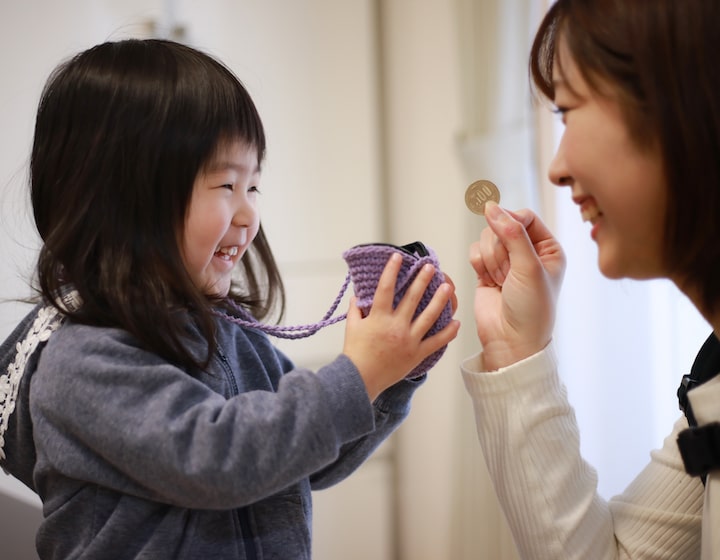
Other Ways To Spend Pocket Money Or Learning Exercises
Don’t like the idea of linking chores to money? It is completely fair to expect kids to help around the house and not expect payment. How about using weekly pocket money as a maths exercise where they need to add what they have or subtract what they’ve spent plus figure out how much they need and how long it’ll take them to get it before they can buy that toy/dress/Ferrari/donate to charity?
This way you can instil values, talk about charity and help your kids pay for their own things even by starting with a just few dollars each week.
Read More: Where To Volunteer In Hong Kong: Nonprofits, Charities And Organisations
Editor’s Note: Kid’s Pocket Money: When To Start, How To Do It And Pocket Money Apps was most recently updated by Jess Mizzi in January 2023.
 View All
View All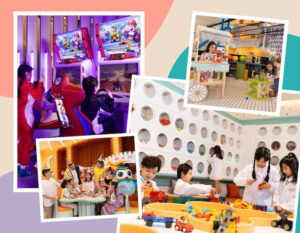










 View All
View All





 View All
View All


 View All
View All







